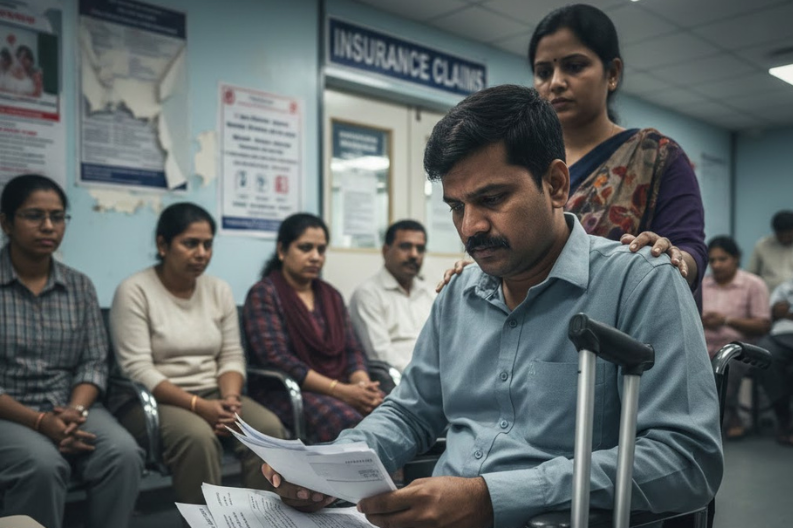A new report has revealed a major problem in India’s healthcare system, and it clearly shows a health insurance crisis for disabled Indians. It finds that almost 80% of disabled people in the country still do not have any health insurance. Because of this, millions cannot protect themselves from high medical costs, even though they often need more healthcare than others.
The National Centre for Promotion of Employment for Disabled People (NCPEDP) collected data from over 5,000 people across 34 states and union territories. Their survey showed that more than half of the applicants faced rejection, and many did not receive any explanation. This rejection often happened only because of disability, even though the law says discrimination is not allowed.
Moreover, the report explains that people with autism, psychosocial disorders, intellectual disabilities, or blood disorders like thalassemia struggle the most. Many cannot use complicated online systems, while others cannot afford high premiums. In addition, a large number do not know what government schemes they can apply for.
The report also points out that India has almost 16 crore disabled citizens, yet health coverage for them remains very limited. Experts say this is a national problem that needs quick and serious action. They note that the Ayushman Bharat scheme covers senior citizens above 70, but it still excludes many disabled individuals who face equal or even higher health risks.
Furthermore, the study highlights regional issues. For example, people in Punjab often face more obstacles because of slow approval systems and limited awareness. In many areas, disabled people depend fully on their families for treatment because they cannot afford private healthcare.
To fix these issues, the report suggests adding all disabled people to Ayushman Bharat without age or income limits. It also calls for better mental health services, easier access to rehabilitation, and financial help for assistive devices. Another important recommendation is the creation of a Disability Inclusion Committee inside the IRDAI, which would design fair and simple insurance rules.
In addition, experts recommend setting standard premiums so companies cannot charge extremely high rates. They also want insurance forms and portals to become fully accessible. A nationwide awareness campaign must remind disabled people that healthcare is their right and not a charity someone gives them.
If these changes do not happen soon, families will continue to spend huge amounts on basic medical care. This could push many into poverty and block their path to education, jobs, and independence. As India moves toward universal health coverage, we must ensure that millions move forward with it.
In conclusion, the report warns that the health insurance crisis for disabled Indians must be addressed immediately to ensure equal and fair healthcare for everyone.



